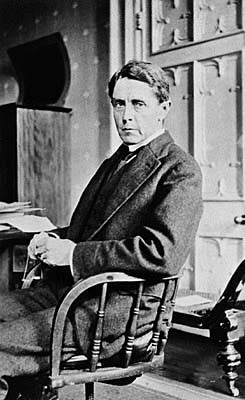
W. Harrison Moore
Sir William Harrison Moore (30 April 1867 - 1 July 1935), usually known as Harrison Moore or W. Harrison Moore, was an Australian lawyer and academic who was a professor at the University of Melbourne and the third dean of the Melbourne University Law School. Moore was born in London, England in 1867, the son of printer John Moore and of Jane Dorothy Moore, née Smith. Moore left school at the age of 17, and worked as a journalist in the gallery at the British House of Commons. With the help of the Barstow law scholarship from the Council of Legal Education, Moore gained entry at King's College at the University of Cambridge in 1887, and was also admitted to the Middle Temple. In 1891 Moore graduated from Cambridge with a Bachelor of Arts degree, and from the University of London with a Bachelor of Laws, winning both the George Long prize and the Chancellor's medal from King's College. He was admitted to the English bar by the Middle Temple later that year. He read under Thomas Edward Scrutton (a future Judge of the Court of Appeal), and intended to practise in the area of commercial law, but his poor health forced him to move to Australia, seeking a better climate. Moore moved to Melbourne, Victoria in 1892, having been appointed as the third Dean of the Law School of the University of Melbourne, succeeding Edward Jenks. Moore was somewhat controversial as a new dean, proposing that Roman law (a strong influence on the civil law system predominant in Europe, but less important to the common law system in Australia) no longer be taught at the University, and the removal of legal procedure as a separate undergraduate course. The Law School under Moore opened its doors to practising lawyers in addition to academics, visiting lecturers in the year of 1908 including people such as High Court Justice H. B. Higgins, Chief Justice of Victoria Sir John Madden, and judge of the Supreme Court of Victoria Leo Cussen. The School, located then in what is now known as the "Old Law" building, struggled for room and resources, Moore having to contribute some of his personal library for the use of students, and some lectures having to be held in the Supreme Court building in the city. Moore died in 1935 in the Melbourne suburb of Toorak, and was survived by his wife. They had no children.
